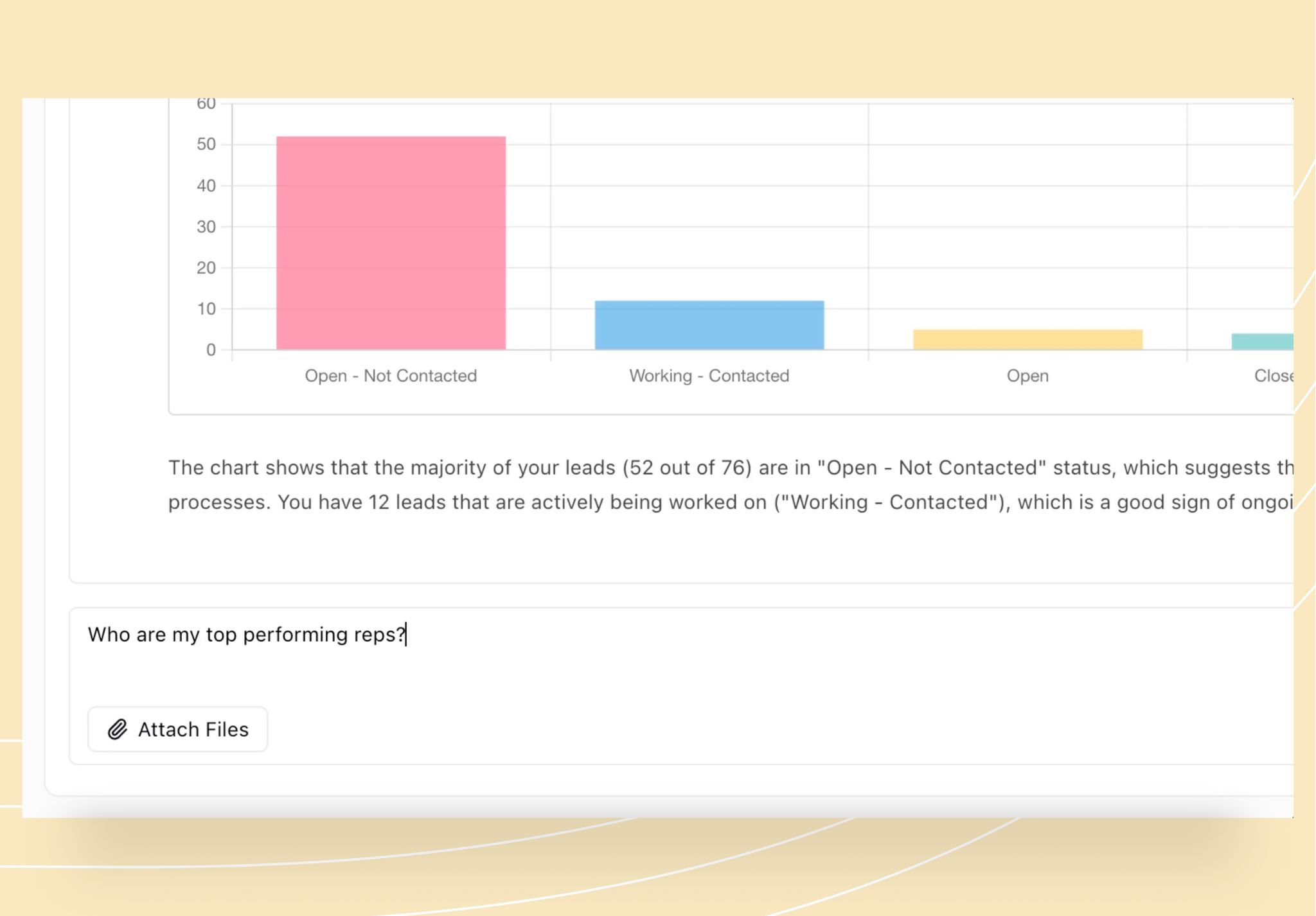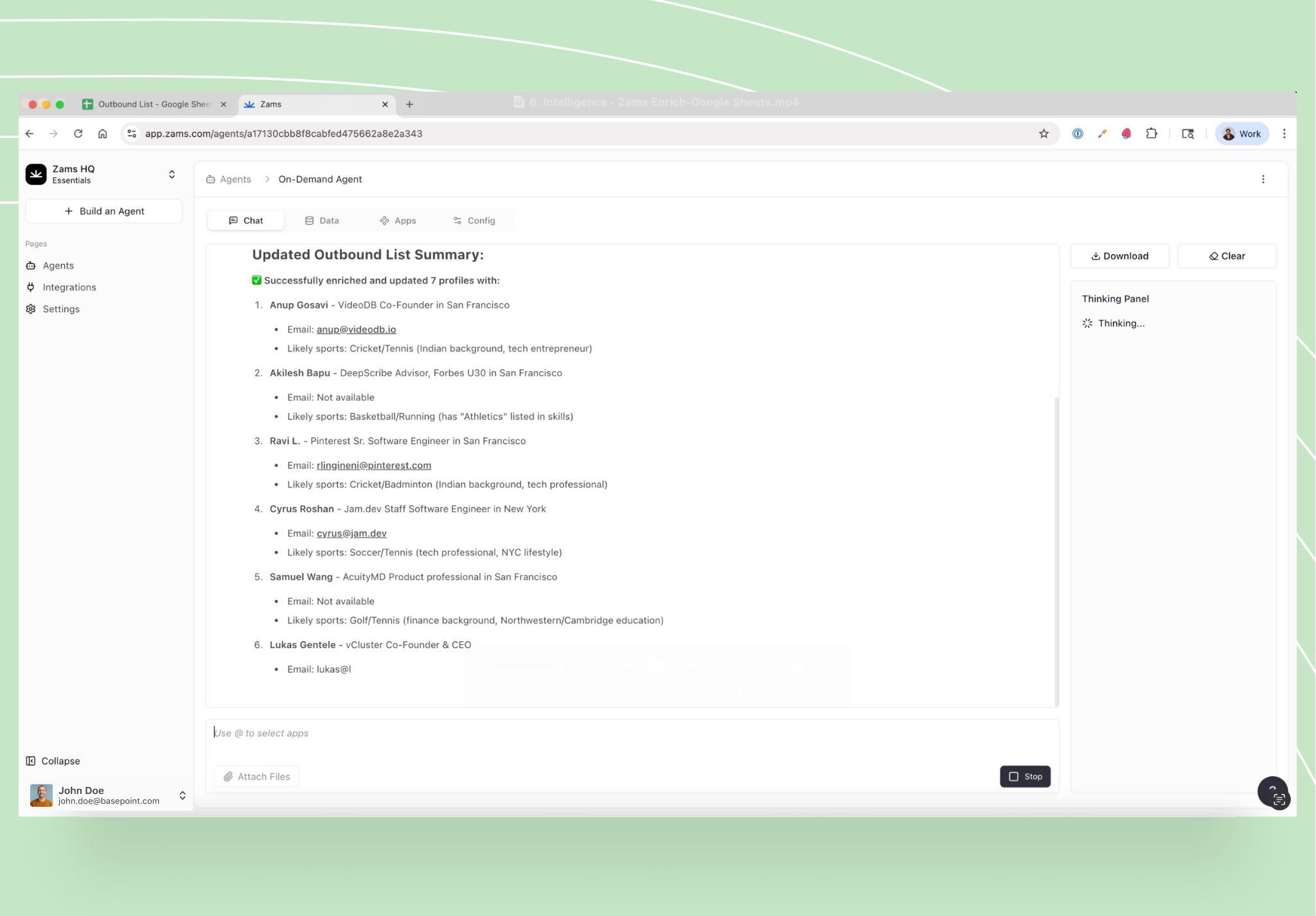The Deal Desk Problem Nobody Wants to Admit
What is a deal desk really solving in complex deals and modern sales?
A deal desk is more than just an administrative checkpoint it’s the central hub where pricing, approvals, and compliance meet revenue execution. The deal desk serves as a central point for coordinating approvals and aligning different departments such as legal, finance, sales, and marketing, ensuring deals are structured efficiently and in line with company policies. But too often, deal desk software is treated as a static system instead of a strategic lever. Modern sales teams need a deal desk that accelerates decisions, not one that buries them under layers of process. Typically, the deal desk sits within sales operations, finance, or legal departments, acting as a bridge between these key business functions.
The drag of manual approvals on enterprise velocity
When approvals rely on manual sign-offs, email threads, and disconnected systems, deals slow to a crawl. Manual approvals can stall the sales pipeline and extend sales cycles, ultimately impacting revenue generation. Instead of supporting reps, the deal desk becomes a bottleneck that risks losing prospects to faster competitors. For B2B enterprises, automating this process is the difference between a stalled pipeline and consistent deal velocity.
Automate Your Deal Desk, Close Faster
Stop letting approvals drag on for days. With Zams, deal desk workflows move in minutes, not weeks so your reps can focus on winning revenue. Automation streamlines managing deals by centralizing data and automating approval workflows, making the entire process faster and more efficient.
Deal Desk Team and Structure
A well-structured deal desk team is the backbone of any high-performing sales organization, especially when it comes to managing complex deals. The right mix of expertise and collaboration ensures that every deal is handled efficiently, from initial structuring to final approval. By bringing together professionals from different backgrounds, a deal desk team can navigate the intricacies of pricing, compliance, and customer needs, ultimately driving better outcomes for both the business and its clients.
Key roles and responsibilities in a modern deal desk
In today’s sales environment, a modern deal desk is made up of several specialized roles, each contributing unique value to the deal process:
- Deal Desk Manager: The central coordinator, responsible for overseeing deal desk operations and ensuring alignment with the broader sales strategy. This role manages workflow, sets priorities, and acts as the main point of contact for escalations.
- Deal Desk Analyst: Focused on data-driven decision-making, the analyst reviews deal metrics, identifies trends, and provides actionable insights to optimize sales processes and improve deal outcomes.
- Sales Operations Specialist: This team member streamlines sales processes, implements sales enablement tools, and ensures smooth collaboration between the deal desk and other departments, such as marketing and IT.
- Legal and Finance Representatives: These experts review contract terms, pricing, and compliance issues, ensuring every deal meets company policies and regulatory standards. Their involvement is crucial for risk management and maintaining deal integrity.
- Customer Success Representative: By advocating for the customer’s perspective, this role ensures that deal structuring supports long-term satisfaction and retention, aligning sales efforts with customer success goals.
This cross-functional team approach allows the deal desk to handle complex sales processes with agility and precision, supporting the sales organization at every stage.
How team structure impacts deal velocity and compliance
The way a deal desk team is structured has a direct impact on how quickly and compliantly deals move through the pipeline. When roles and responsibilities are clearly defined, deal desks can:
- Streamline Deal Processes: Assigning specific tasks to each team member reduces confusion and accelerates deal review and approval, helping sales teams close deals faster.
- Enhance Compliance: With legal and finance experts embedded in the process, deal desks ensure that every deal adheres to internal policies and external regulations, minimizing risk and protecting the business.
- Improve Sales Efficiency: By providing sales reps with expert guidance on deal structuring, pricing, and contract terms, the deal desk empowers the sales team to focus on selling, not paperwork.
Ultimately, a well-organized deal desk team enables sales organizations to manage complex deals with greater speed, accuracy, and confidence, turning the deal desk into a strategic asset rather than a bottleneck.

Where Deals Go to Die: Bottlenecks in Approval Cycles
Why email chains and spreadsheets stall negotiations
Relying on spreadsheets and endless email chains for deal approvals is a recipe for missed opportunities. These outdated tools lack transparency, create version-control nightmares, and leave reps guessing about deal status. Automation replaces this chaos with real-time workflows that surface the right information at the right moment.
Automated workflows also enhance contract management by ensuring all contract versions and approvals are tracked in a centralized system, streamlining the contract lifecycle within the deal process.
The hidden cost of waiting on legal and finance sign-offs
Every delayed contract review or finance approval adds days to the sales cycle and each day increases the chance of a prospect going cold. The cost isn’t just lost time, it’s lost revenue. Legal teams and finance teams play a critical role in the approval process by reviewing high-risk clauses, ensuring compliance with legal and financial policies, and mitigating organizational risk. Automated deal desk systems route requests instantly, ensuring legal and finance sign-offs happen in minutes instead of weeks.
The legal team vets contracts for regulatory compliance and reviews terms to prevent the organization from entering into risky agreements, while the finance team assesses deal profitability, manages financial risk, and ensures revenue recognition before closing deals.
Rewiring the Deal Desk with Automation
Deal desk software that routes approvals instantly
Modern deal desk software eliminates bottlenecks by routing approvals automatically to the right stakeholders, including key stakeholders such as legal, finance, and other relevant departments. Instead of chasing signatures through inboxes, reps can trigger workflows that notify legal, finance, or leadership instantly. This reduces turnaround times and keeps deals moving without unnecessary friction.
Salesforce deal workflows that remove repetitive admin
Salesforce deal workflows take manual data entry and status updates off the sales team’s plate. By integrating approval logic directly into Salesforce, reps spend less time on admin and more time negotiating with prospects. Integrated workflows help sales teams manage sales deals from initiation to closure, streamlining approvals, pricing, and contract management for greater efficiency. This connection between CRM and deal desk automation ensures accurate records and faster deal progression.
Turning approvals into a 14-minute process instead of 14 days
With automation, approvals that once dragged on for weeks can be completed in minutes. Smart workflows streamline pricing exceptions, discount approvals, and contract reviews, turning deal desk approvals into a competitive advantage. For sales teams, faster cycles mean more closed revenue and fewer deals lost to delays, resulting in a higher number of closed deals and improved sales metrics.

Implementing a Deal Desk
Launching or upgrading a deal desk is a strategic initiative that can transform how your organization manages complex deals. Success depends on careful planning, the right technology, and a commitment to continuous improvement.
Steps to launch or upgrade your deal desk
To implement a deal desk that drives results, follow these essential steps:
- Define Deal Desk Objectives: Start by aligning your deal desk’s goals with the broader objectives of your sales organization. Focus on enhancing sales efficiency, boosting customer satisfaction, and supporting revenue growth through better deal management.
- Assess Current Sales Processes: Take a close look at your existing sales processes to identify bottlenecks, inefficiencies, and areas where deal desk involvement can add the most value especially in managing complex deals.
- Design Deal Desk Structure: Build a cross-functional deal desk team with clearly defined roles and responsibilities. Ensure you have the right mix of expertise to handle contract terms, pricing strategies, and customer success.
- Implement Deal Desk Software: Invest in deal desk software that automates workflows, facilitates collaboration, and provides real-time visibility into deal performance. The right technology is key to scaling deal desk operations and supporting sales teams.
- Develop Key Performance Indicators (KPIs): Establish KPIs such as deal cycle time, average deal size, and customer satisfaction to measure deal desk performance. These metrics will help you track progress and identify opportunities for improvement.
- Provide Ongoing Training and Support: Equip your deal desk team with regular training and resources to keep skills sharp and ensure everyone is up to date on best practices for managing complex deals.
- Continuously Monitor and Refine: Regularly review deal desk performance, gather feedback from sales teams and other stakeholders, and make data-driven adjustments to optimize deal desk operations and drive continuous improvement.
By following these steps, organizations can implement a deal desk that not only manages complex deals efficiently but also drives sales efficiency, improves customer satisfaction, and supports long-term revenue growth. With the right structure, technology, and focus on key performance indicators, your deal desk can become a powerful engine for business success.
From Reactive to Predictive Deal Management
Using automation to surface risk before it blocks revenue
Automated deal desk systems flag risks such as compliance issues, unusual discounting, or missing approvals before they become roadblocks. Proactive alerts give managers the chance to resolve risks early, protecting both revenue and customer relationships. By moving from reactive fixes to predictive management, teams safeguard deal velocity. The effectiveness of risk management in the deal desk depends on seamless collaboration between sales, legal, and finance to ensure all risks are properly identified and addressed.
Real-time dashboards that align reps, managers, and finance
Dashboards centralize deal data, providing reps, managers, finance, and customer success teams with shared visibility. Instead of waiting for reports, teams can see deal health in real time from approval status to contract progress. This transparency eliminates silos and creates alignment across every stage of the sales cycle. The customer success team uses this visibility to ensure smooth handoffs and ongoing customer satisfaction.
Why automated playbooks redefine what a deal desk does
Traditional deal desks were built for oversight; automated deal desks are built for acceleration. Playbooks built into automation software guide reps through the right steps while removing repetitive tasks. This shifts the deal desk from a checkpoint into a revenue engine that accelerates, supports, and scales B2B sales. Automation is the foundation of an effective deal desk, enabling streamlined processes and greater sales productivity.
The ROI of Automating the Deal Desk
Faster deal cycles and cleaner forecasting accuracy
Automating the deal desk accelerates every stage of the approval process, shrinking cycle times from weeks to days or even minutes. Automation also enables sales teams to prioritize deals by quickly assessing revenue potential and strategic fit, ensuring that the most promising opportunities receive attention first. With faster approvals, pipeline forecasts become cleaner and more reliable, allowing leadership to predict revenue with greater accuracy and confidence.
Proof points: when Salesforce desk meets deal desk automation
When Salesforce desk capabilities are integrated with automated deal desk workflows, data silos disappear. Integrated systems can efficiently manage complex pricing structures, ensuring regulatory compliance and profit management, while also supporting custom pricing for non-standard deals that require unique quote adjustments and tailored strategies. Reps gain seamless approval routing, managers get real-time updates, and finance has instant visibility into deal terms. This synergy not only improves accuracy but also transforms approvals into a streamlined growth driver.
Turning approval speed into a competitive advantage
Approval speed directly impacts win rates. Faster approvals are especially critical for high value deals, where delays can jeopardize large, complex transactions and potential revenue. Prospects notice when your team responds faster than competitors, making automation a key differentiator. By turning approvals into a frictionless process, companies position their deal desk as a true revenue enabler, not a bottleneck. Automation empowers sales teams to close high value deals more efficiently and consistently close high value deals at scale.
Scaling the Future-Ready Deal Desk
Integrating deal desk systems with CRM, finance, and ops
A future-ready deal desk is never isolated it connects seamlessly with CRM, finance, and operations platforms. Integration also ensures that legal and finance teams are always in the loop for approvals and compliance, especially when managing non-standard deals. This integration keeps every team aligned, ensuring that deals move forward without miscommunication or delays. Centralised systems create consistency across global sales operations.
Customisation and flexibility for global sales teams
Every sales team has unique approval processes, discount structures, and compliance requirements. Flexible deal desk software can accommodate the unique requirements of complex sales deals, ensuring that even the most intricate transactions are managed efficiently. Modern deal desk software must be customisable to reflect these needs while staying scalable across regions. Flexibility ensures global teams can adapt workflows without sacrificing speed or governance.
Building workflows that adapt as pipelines grow
As pipelines expand, so do approval demands. Deal desks play a strategic role in supporting scalable and efficient sales operations by streamlining complex deal approvals and enabling sales teams to manage high-value and nonstandard deals effectively. Automated deal desk workflows scale effortlessly, handling larger volumes without introducing bottlenecks. By designing adaptive systems, sales leaders future-proof their deal desks to handle growth while keeping velocity intact.
Final Thoughts
The deal desk shouldn’t be where revenue momentum slows down, it should be where deals accelerate. By automating approvals, integrating systems, and scaling workflows, businesses can transform their deal desk from a bottleneck into a growth engine. Speed, accuracy, and alignment are no longer optional; they’re the baseline for modern B2B sales success.
Equip Your Deal Desk with Zams
Zams gives your deal desk speed. From automated approval routing to Salesforce integrations, it cuts friction out of every step, so your team can close deals at scale.
FAQ
What is a deal desk and why does it matter?
A deal desk is a centralised team or function that manages pricing, approvals, and contract workflows for complex sales. It ensures deals move smoothly by aligning sales, finance, and legal, but without automation, it often becomes a bottleneck.
What does a deal desk do in B2B sales?
A deal desk handles pricing exceptions, discount approvals, contract negotiations, and compliance checks. It acts as the bridge between sales reps and internal stakeholders to accelerate deal closure and protect revenue.
Why do approval cycles slow down without automation?
Manual approval cycles rely on endless email chains,spreadsheets, and back-and-forth across teams. This slows down negotiations, risks losing prospects, and damages forecast accuracy.
How does deal desk software improve approval speed?
Deal desk software automates routing, escalations, and notifications so approvals happen instantly. Integrated with tools like Salesforce desk, it ensures contracts and pricing approvals move in minutes instead of weeks.
What ROI can businesses expect from automating the deal desk?
Automating the deal desk leads to faster deal cycles, higher win rates, and more accurate forecasting. Companies gain a competitive advantage by reducing approval delays and keeping pipelines moving at revenue velocity.



